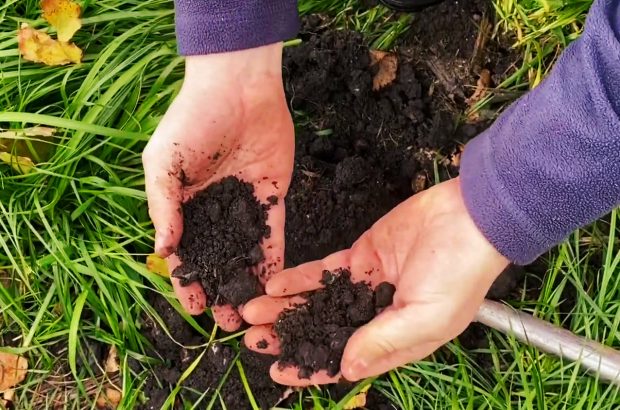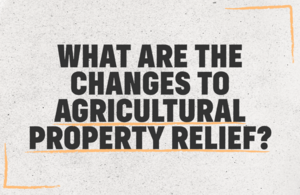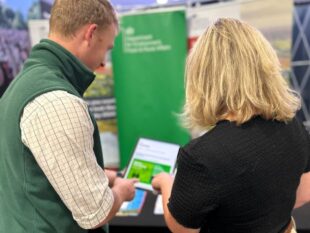
We will soon invite farmers to submit expressions of interest in taking part in the Sustainable Farming Incentive pilot.
Pilot payments will be made up of two parts: payment for land management actions, and a participation rate for the work and costs associated with taking part in learning activities. We plan to pay monthly in arrears from the date that agreements start.
In this post, I'll provide an overview.
Land management actions
Participants in the pilot (and the scheme itself) will be paid for land management actions that contribute towards a ‘standard’. These standards will help farmers to create greener landscapes, improve biodiversity and tackle climate change. More information on the standards and payment rates will be published very soon.
Completing the actions under the same standard will make a real, positive difference. Each standard has been developed based on evidence and practical experience of delivering environmental benefits.
In the first phase of piloting, participants will be able to select from eight standards to build their own agreements. As the pilot progresses, we’ll develop and introduce more standards.
Within each standard there will be three levels for participants to choose from Introductory, Intermediate and Advanced. Each level is more challenging and rewarding than the previous level, and will deliver greater environmental benefits. None of the standards will pay for things that are minimum expectations required by law.
Participants will be able to choose which standards they want to apply for and to which land parcels they want the standard to apply. You will also be able to pick a different level for each standard, to develop an agreement that works for your business.
Payment for land management actions
For the first phase of the pilot, land management action payment rates will be roughly the same as those under Countryside Stewardship. But that’s just a starting position. We’re developing payment rates for the launch of the Sustainable Farming Incentive scheme from 2022 in consultation with farmers and representative groups.
As our approach to scheme payments evolves, we’ll reflect that in pilot rates. Participants already in the pilot will not be unfairly disadvantaged compared to those who join later, and vice versa.
Learning activities
Pilot learning will involve a range of activities, including surveys, interviews, group meetings and workshops. We think those learning activities will involve, on average, around 15 hours per month. Through those activities, we’ll seek feedback on all elements of the pilot scheme to test and improve the future offer.
We’ll keep learning activities straightforward. We want to capture ideas and minimise bureaucracy.
In fact, we expect that most of the learning will involve ‘thinking while doing’. For example, you might be thinking about potential improvements to technical guidance, while planning or physically undertaking work.
Payment for learning activities
The pilot participation payment will be the same for each participant. That’s because the learning demands are the same for everyone.
We will publish the exact rates for land management action and the participation payment amount later this month, ahead of inviting expressions of interest in taking part in the pilot.
We will talk more about this in the coming weeks so do subscribe to this blog and sign up to Defra’s e-alerts.




 The
The 
10 comments
Comment by PAULINE BLAIR posted on
How will SFI be of any benefit to those who have been in environmental schemes for years, are already farming sustainably and producing public goods, such as species-rich pasture, healthy soil, low/zero carbon emissions, but whose existing agreements expire before ELMS begins.
Comment by Julia Aglionby posted on
A really good question - hopefully the Defra Future Farming team can provide clarity. My understanding is that SFI National Pilot is for those not currently in schemes but that SFI 2022 will be much more widely available; to all BPS claimants.
Making SFI a success is key to winning the hearts and minds of the farming community.
Comment by Tom Lewis posted on
Hi Pauline - great question.
When your current agreement ends, if that is before the full Sustainable Farming Incentive, Local Nature Recovery or Landscape Recovery schemes start, you will of course be able to join Countryside Stewardship, which will remain open for a few more years.
The pilot is the opportunity to learn ahead of those schemes launching - and we have to be careful about double funding any activities - so those farmers in live whole farm agreements won't be able to join this Sustainable Farming Incentive pilot.
Finally, as Julia sets out (thanks for your comment, Julia), from next year (2022) we will open Sustainable Farming Incentive to all farmers. Initially that will focus on a core set of activities and expand in time based on what we learn from our piloting and continued tests and trials. We want to keep on piloting up until 2024 - as we know that there are some brilliant opportunities for farmers and other land managers to help us co-design our environmental land management schemes. So if you join our pilot you won't be disadvantaged. If you don't join, you will still be able to join our live Sustainable Farming Scheme from 2022, I hope that helps. Apologies for the long response!
If you have any follow up questions, you can let me know or you can email ffcpcodesign@defra.gov.uk.
Thanks, Tom.
Comment by Darren posted on
Tom, You say in your response to Pauline that SFI will be open to all farmers. We are new entrant farmers that rent arable land within a rotation from a land owner. I’m assuming this means we’ll yet again miss out on any kind of support regardless of that fact we are make big changes in our business to try and farm more sustainably?
Comment by Tom Lewis posted on
Hello Darren - thanks for your question. I don't think you should assume that. For this Sustainable Farming Incentive pilot, we are starting with farmers who currently receive the Basic Payments Scheme - if you don't currently receive this then you won't be able to join this pilot. We will be doing more piloting and we will be looking to widen who is eligible.
Soon we will be setting out how the Sustainable Farming Incentive Scheme that opens in 2022 will work. I would encourage you to drop us a line ffcpcodesign@defra.gov.uk. It would be great to understand your situation and get your insights. Any thoughts about how we can work with both new entrants and those with differing land tenures are welcome.
Thanks, Tom
Comment by Caroline Corsie posted on
Any comments on how Horticulture / commercial orchards e.g. cherry, may get recognition for the benefits they deliver e.g. pollination ; in particular those that have historically not received BPS
Comment by Tom Lewis posted on
Hi Caroline. Thanks for your question. The Sustainable Farming Incentive will recognise the positive actions taken by land managers to help contribute to the environment. Participants can tailor-make the standards to which they are held, plus whether to apply them to all the relevant land on their farm or only some of it.
Indeed, this sustainable farming incentive scheme pilot includes an Arable and Horticultural Land Standard, designed to increase farmland biodiversity, specifically including wild bird and pollinator populations. Commercial orchards (if they currently receive BPS and aren’t in an existing agri-environment scheme) should fall under this standard and be eligible for funding through this pilot. This is one of eight standards available for farmers in this pilot, and under this standard we offer three different ambition levels for the farmer to choose from: Introductory for £28/ha, Intermediate for £54/ha and Advanced for £74/ha. As the payments increase so do the requirements for how the farmer ensures their land’s biodiversity.
We are planning to introduce further standards in addition to the eight we already have in this Sustainable Farming Incentive pilot.
For this pilot, we are starting with farmers who currently receive the Basic Payments Scheme. If you don’t, unfortunately you won’t be able to join. But we still want to hear from you, as we improve how we work with new entrants for our future schemes.
Please feel free to contact us at ffcpcodesign@defra.gov.uk. We’d love to hear about your situation and get your input on whether our current horticulture standard is right for commercial orchards.
For more information, have a look at our latest Policy Paper on our piloting of the Sustainable Farming Incentive at https://www.gov.uk/government/publications/sustainable-farming-incentive-scheme-pilot-launch-overview. Thanks, Tom.
Comment by PAUL BAKER posted on
Example query: Field Parcel 20.2 ha gross OS area includes historical permanently ineligible features (PIF) eg a pond, so cropped historically BPS eligible land was 19.95ha...
Say If i was to include this field in SFI pilot and under Arable and horticultural Standard :"Advanced management Level".
What area would be be basis of the "eligible land" 20.2 ha gross or 19.95 croppable to calculate % area of actions for that management level.
For Advanced level are the historically PIF water features eg ponds eligible to be included in the 2% "3.Maintain areas of Tall vegitation,scrub and wet features." management requirement.
Can I include seperate parcels made up of just scrub and water ie historically ineligible for BPS features to meet those management requirements?
Comment by PAUL BAKER posted on
oh and would need to subdivide the field as over 20ha OS but under 20ha cropable under the support crop pest preditors requirement
Comment by Sarah Stewart posted on
Hi Paul,
Thanks for reaching out to us.
Earlier this month we published more information about the Sustainable Farming Incentive pilot, which includes more guidance on the eligibility criteria. https://www.gov.uk/guidance/sustainable-farming-incentive-pilot
If you have already submitted an expression of interest, the amount of eligible land you have should become clear as you submit your formal application. The exact specifications of your eligible land will be displayed as you then complete your application online.
If you need a bit more support, do contact the Rural Payments Agency on 03000 200 301, or alternatively at ruralpayments@defra.gov.uk.
We encourage you to sign up to the Defra e-alert to receive information and updates on our future schemes, including the pilot. You can also subscribe to our blog for updates.
Best wishes,
Sarah